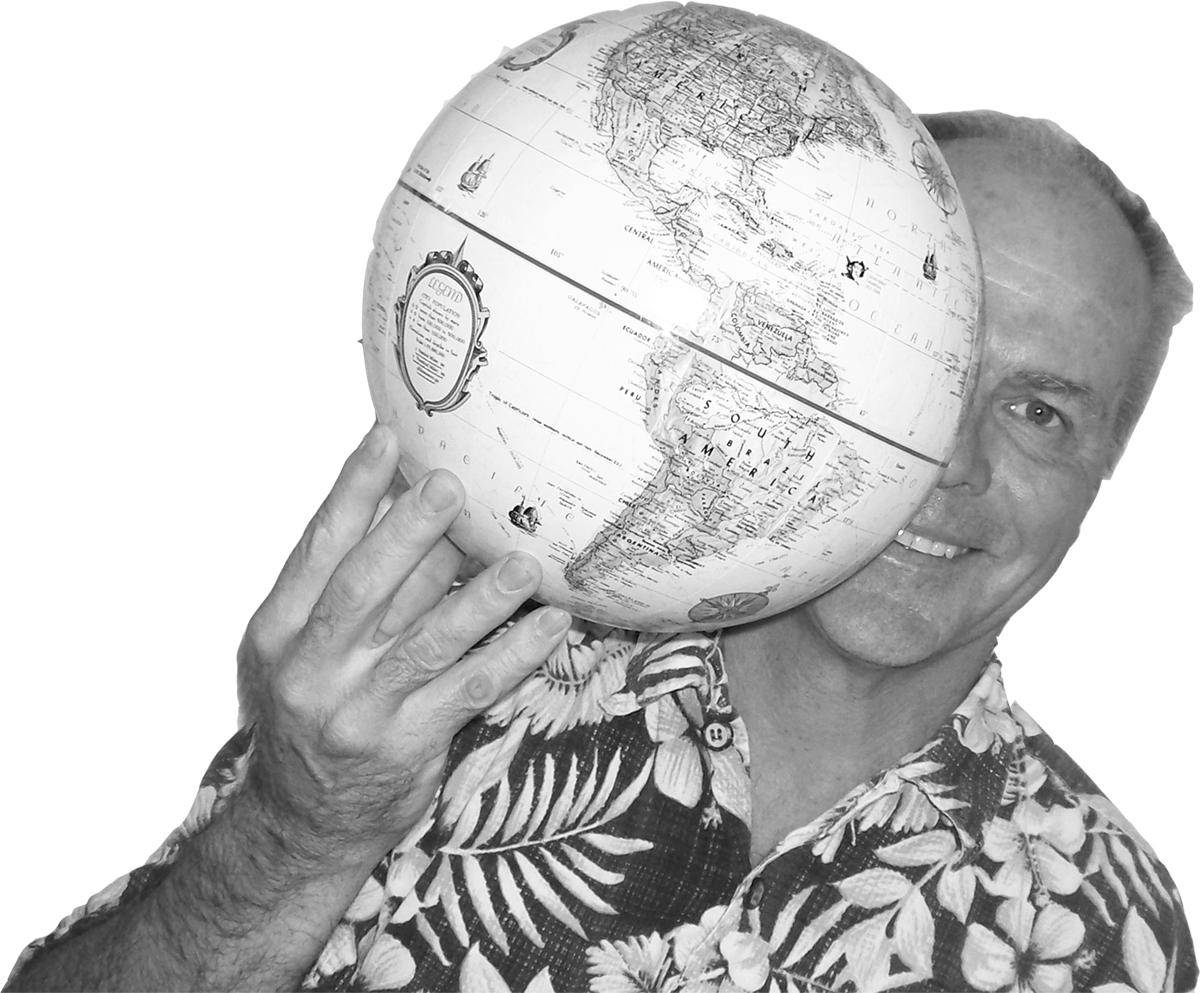Autumn is here. The evening air is cool, fragrant and inviting, and it reminds me of those October walks that I took with Dad when I was just a kid.
Dad was an outdoorsman, and October marked the passage between the summer’s fishing trips and November’s hunting outings. Sometimes after dinner, he would walk the mile or so from our house to a pair of sporting goods stores—Mages and Klein’s, right across the street from each other on Harlem, a block or so north of Grand Avenue.

There were always shotgun shells to buy, or maybe some neatsfoot oil for his boots, but it wasn’t only necessities that drew Dad to the sports stores, as I later learned.
Sometimes he let me come along, but he wouldn’t slow down for me. Dad walked with a strong, purposeful stride, and if I wanted to tag along, I would just have to keep pace.
That was fine with me, for it filled me with pride to be old enough at seven or eight to keep up with Dad all the way to Grand and Harlem. I even tried to match his stride, step for step, and when he caught me doing this he would march even more purposefully, stretching his stride ever longer with each step, until I was fairly leaping to keep up. Then he would laugh and give me a playful shove, and we would go back to walking at a normal rhythm, man and son, side by side.
Sometimes we would stop in at the Army Surplus Store next to Klein’s. They always had useful items for an outdoorsman — ammunition boxes, woven belts, rucksacks, canteens, canvas tarps.
Only ten years or so earlier, Dad had lived with all of those army items day and night for five years as he fought the Japanese in the steamy Pacific island jungles of New Caledonia.
I didn’t appreciate the significance of all that army gear until many years later, when I was an adult, and Dad and I went on a November hunting/fishing trip to Wisconsin. We arose before dawn and spent the drizzly fall day sitting in deer stands.
At sunset we dropped off our guns and grabbed fishing rods to spend the damp night sitting on the bank of Petenwell Flowage to fish for walleye.
Just before sunrise the next day, we stashed our fishing gear and headed with our guns for another drizzly day of deer hunting.
After another luckless hunting day, we returned at sunset to the cabin we hadn’t entered in two days. “Wow,” I said. “That’s the longest I’ve ever spent outside without any shelter at all.”
“Huh,” Dad said, as if surprised.
“Why?” I asked. “What’s the longest you’ve ever spent outside with no roof, no tent, nothing over your head?”
He shrugged. “Five weeks, maybe. Six.”
It was in the jungles of New Caledonia during the war, where a night’s rest and shelter might mean nothing more than curling against a tree trunk and hunkering against spiders, scorpions, and centipedes as rain shawled down.
I was stunned speechless. As a child, I thought war meant exciting days that ended in a pup tent. The 1950s war movies never hinted that the greatest enemy might be weeks or months spent outdoors, battling nature and disease. Go figure.
I can only wonder what he felt in the Army Surplus Store. Would it have been a nostalgic visitation of the gear that might have meant the difference between life and death only a decade earlier? Or did he visit the Army Surplus Store to remind himself of how blessed he was to be able to turn his back on all that gear when he stepped out from under the roof of his warm, dry house?
Outside of Mages, an old man always stood on the corner, selling hot dogs and tamales from a small steam cart on wheels. His hair was gray, and he wore a moth-eaten sweater and a wool cap pulled down over his forehead, even if the evening was warm and pleasant.
We had already eaten dinner before our walk, but Dad always made it a point to stop and chat with the old man as we ate tamales. They would exchange a joke or a wish for good health before we walked away with a handshake and a friendly wave.
“Who is that man?” I remember asking Dad once.
He shrugged and said, “I don’t know his name. He’s the tamale man.”
His answer didn’t surprise me. Dad always had a friendly, open manner about him. When he spoke to strangers, he used the same tone he would use with an old pal.
I told Dad that I felt sorry for the old man, having to stand out on the corner in any weather selling hot dogs to strangers, but Dad shook his head. “He’s richer than a millionaire,” he said.
I have never forgotten those words.
For years I wondered what would possess a millionaire to stand on the street corner, selling hot dogs, but in time I came to realize the meaning of Dad’s words. It wasn’t money that made the old tamale man rich. True wealth lay elsewhere.
The old tamale man was richer than a millionaire because he made every man his friend. No walker on the street could pass the old man without a smile and a wave that made the evening just a bit brighter — for him and for them.
Dad and I walked home. When we passed by the Army Surplus Store, I think his stride grew stronger.
It was the stride of a man wealthier than a millionaire, counting his riches.
TR Kerth is the author of the book “Revenge of the Sardines.” Contact him at trkerth@yahoo.com.




